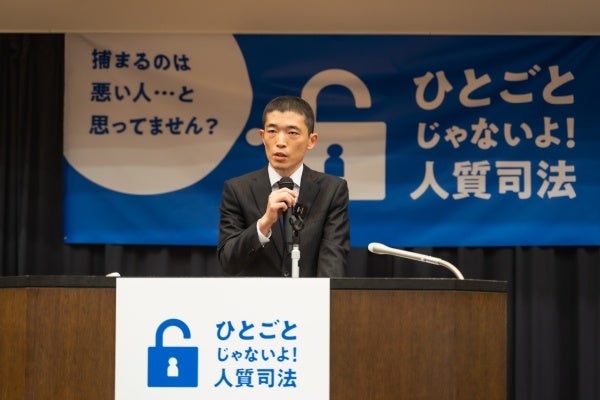Lire la version en français / Hier die deutsche Ausgabe lesen
“You’re a brat, aren’t you? You’re like a child.”
The public prosecutor’s words fill the stark interrogation room in Yokohama, Japan. Yamato Eguchi sits silently and almost motionless, alone opposite the prosecutor across a plain metal desk, eyes closed and with his back against a blank wall.
“You’re just annoying. You’re just a pain in the ass.”
The prosecutor’s rain of verbal abuse and humiliation continues for 56 hours over 21 days.
At one point, he pulls out Eguchi’s middle school grades.
“It looks like you weren’t very good at math, science, or any science stuff.”
None of this has anything to do with the charge against Eguchi, who in 2018 was a lawyer accused of inducing his client to make a false statement regarding a car accident. The blast of berating and belittling seems to be the point in of itself.
And this is typical in Japan. Regular Daily Brief readers may recall our look at Japan’s “hostage justice system” – hitojichi-shiho – in which you are essentially considered guilty as soon as you’re a suspect in detention, long before any trial even begins.
The authorities undermine your most basic rights. They try to strip you of the right to remain silent, they question you without your lawyer present, and they coerce you to confess by denying you bail. They frequently detain you prior to trial for ages — sometimes for months or even more than a year — to badger confessions out of you, whether you’re guilty or not.
But what is unusual in Eguchi’s case is that there’s a video of the abusive interrogation. Eguchi brought a lawsuit against the government, demanding state redress for what he endured while in custody in 2018. Some of the video recordings of Eguchi’s interrogations were played in court a few weeks ago, and they’re now on YouTube for the world to see (with English subtitles even).
It has sparked public outrage in Japan. And rightly so.
So many of the problems built into Japan’s “hostage justice system” are all there in that short set of video clips. In addition to the harangues and insults against Eguchi, the prosecutor laughs at his right to remain silent (the right against self-incrimination). Eguchi has no lawyer there to represent him – he wasn’t allowed one.
These same abusive practices have resulted in countless wrongful convictions and torn apart so many lives and families across Japan.
Hopefully, the video footage and the public outrage will help bring about the reforms Japan’s criminal justice system desperately demands. Japan’s Diet, the national legislature, should urgently bring it into line with international standards: protecting the right against self-incrimination, for example, and allowing lawyers to be present during questioning.
The whole approach of Japan’s criminal justice system needs to change in a fundamental way. People should be considered innocent until proven guilty in a court of law. No one should be assumed to be guilty at the outset and then subjected to humiliating abuse for weeks on end.









